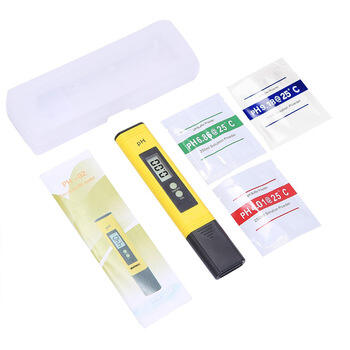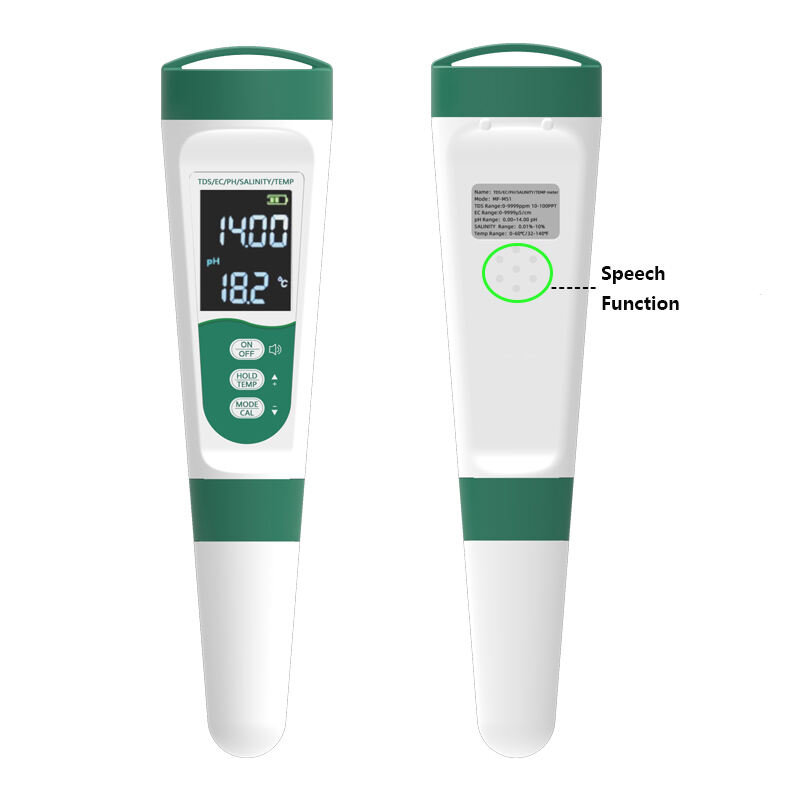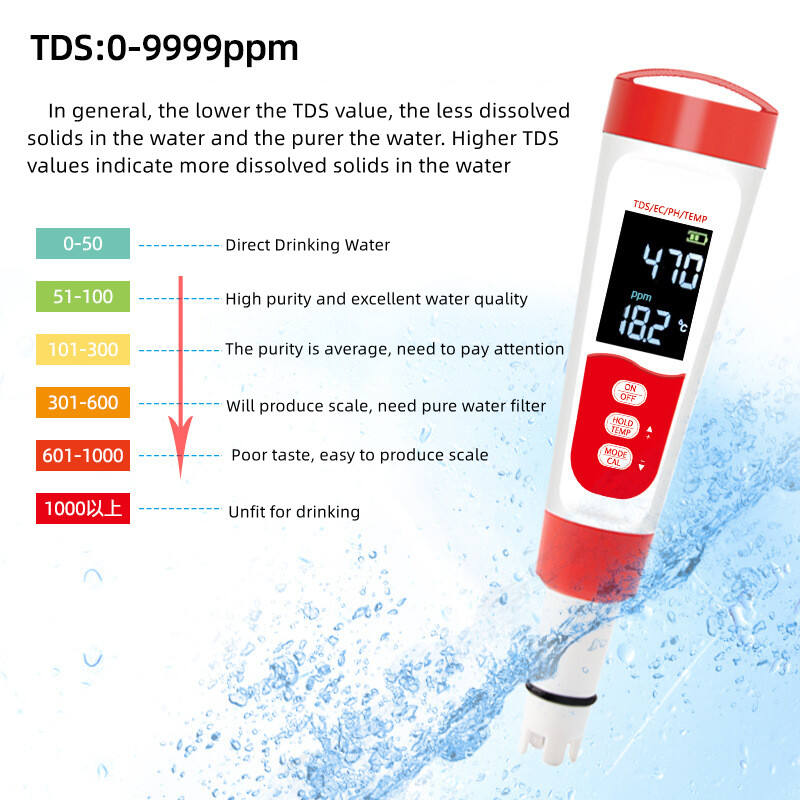химия на pH метър
Фотометър pH в химията представлява фундаментален аналитичен инструмент, който комбинира sofisticirani електрохимични принципи с прецизни измервателни възможности. Това основно лабораторно устройство точно определя концентрацията на водородните иони във решенията, предоставяйки ключова информация за нивата на киселина или алкалност. Инструментът се състои от специализиран електрод, който реагира на водородните иони, свързан с високоимпедансен волтметър, който преобразува електрическия потенциал в четения на pH. Модерните фотометри pH включват функции за температурна компенсация, гарантирайки точни измервания при различни околнинни условия. Технологията използва стъклена мембрана на електрода, която развива електрически потенциал, пропорционален на pH-то на тестваното решение. Този електрод работи в съчетание с референтен електрод, за да завърши електрическата цеп. Повечето напреднали модели често включват функции за автоматично калибриране, способности за записване на данни и цифрови дисплеи за подобряване на потребителския опит. Приложенията се разпространяват в много области, включително мониторинг на качеството на вода, обработка на храна, производство на фармацевтични продукти, тестване на земеделските почви и академично изследване. Способността на инструмента да предоставя бързи и точни измервания го прави незаменим в процесите на контрол на качеството, изследователските приложения и мониторинга на съответствието с регулациите.


